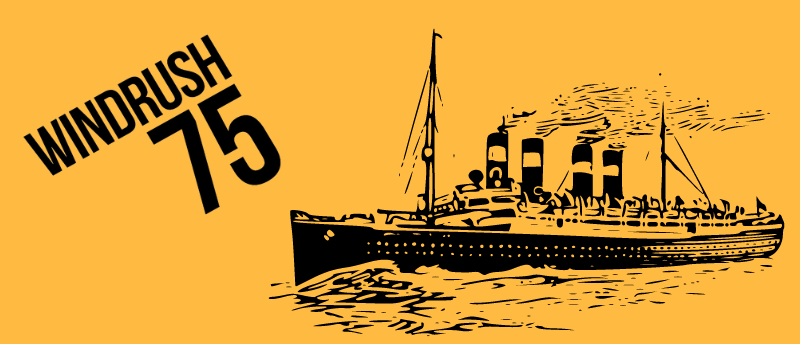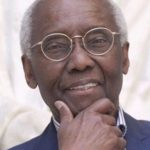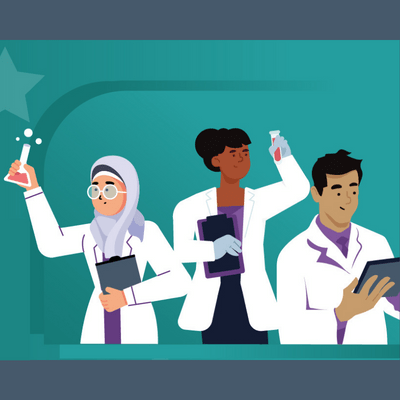Windrush 75: The story of Sir Geoff Palmer

 On the 75th anniversary of the arrival of HMT Empire Windrush in the UK, we speak to Sir Geoff Palmer (left), a distinguished brewing professor, about Windrush, his story and his work.
On the 75th anniversary of the arrival of HMT Empire Windrush in the UK, we speak to Sir Geoff Palmer (left), a distinguished brewing professor, about Windrush, his story and his work.
On 22 June 1948, HMT Empire Windrush arrived at Tilbury Docks (Essex, UK) carrying over 800 passengers from the Caribbean. At the time, the UK had a weakened economy and faced severe labour shortages after World War II, so the UK government ran a campaign encouraging people from the Commonwealth to come to the UK to work and help rebuild society. This included the establishment of the National Health Service, which also celebrates its 75th birthday this year.
The people who moved to the UK from the Caribbean between 1948 and 1971 became known as the Windrush generation, and although not all Windrush generation migrants arrived on HMT Empire Windrush itself, the ship became a symbol of the wider post-war migration from across the Commonwealth.
Windrush Day celebrates the contribution this generation made to the creation of the modern UK that we share today. To mark the 75th anniversary of Windrush and highlight the contributions of the Windrush generation to UK science, we spoke to Sir Geoff Palmer, a prominent professor of brewing at Heriot-Watt University (Edinburgh, UK) and activist to hear about his story and experiences.
London is the place for me
Geoff was born in St. Elizabeth in 1940 but grew up in Kingston (both Jamaica) after his parents moved there to find work. With jobs few and far between, his father moved to the USA in 1947, and in 1951, still struggling to find work as a dress maker, his mother moved to the UK, leaving Geoff in Kingston to be brought up by his aunties.
In 1955, at the age of 14, Geoff received a letter telling him that he was going to join his mother in London. Armed with a small suitcase and a newspaper that his great aunt wrapped around his chest to shield from the cold of England, Geoff travelled the 10-day trip to London by himself. “People ask me if I felt a sense of fear during my journey, but I didn’t, because I was joining my mother.”
The morning after Geoff arrived in London, a month before his 15th birthday, he and his mother were leaving their shared accommodation to go to work when they were stopped by a man in a suit. The man informed them that as Geoff was under 15 years of age, he had to go to school. “The man at the door is the person who changed my life. If he hadn’t insisted that I go to school, then I wouldn’t be speaking to you today.”
After being rejected by the local school for being “educationally subnormal”, Geoff was sent to another school for the summer term. Excelling at cricket, he was then scouted and joined Highbury Grammar School (London, UK) from 1955 until 1958.
Far from ‘educationally subnormal’
After attending school for 3 years, Geoff got a job as a junior lab technician at Queen Elizabeth College (London, UK), now part of King’s College London (UK), working with Professor Garth Chapman. Chapman saw Geoff’s potential and gave him time off so he could get the qualifications required to get into university. Only, when he applied, none of the universities accepted him. With Chapman’s help, Geoff got a place on a botany course at Leicester University (UK), which he completed in 1964.
After his undergraduate degree, Geoff applied to master’s courses, and got two interviews, one of which was with a politician. “He told me to go home and grow bananas. And I pointed out to him that it’s difficult to grow bananas in Haringey (London). That was me telling him about my sense of belonging. Jamaica was colonized by the British in 1655. We were told this was the mother country, the country we were enslaved for. My history with Britain goes back to 1655, so nobody can tell me to leave. Of course, the interviewers didn’t like that, so, I didn’t get the position.”
Geoff’s second interview was with Professor Anna Macleod at Heriot-Watt University in Edinburgh (UK), who took him on for a PhD in barley, biochemistry and biophysiology. His research focused on the process by which barley changes into malt, and he proposed a new mechanism for how this occurs. The research, which was published in Nature, caused great controversy in the brewing industry. At the time, the industry thought the enzymes involved in the malting process came from the germ of the grain during germination and subsequent growth; however, Geoff discovered that the enzymes came from the bran. Microscopy and scanning electron microscopy were fundamental to his research, as they enabled him to study the structure and function of barley and malt as well as other cereals such as sorghum.

STEM Tea | Continuing the DEI journey in STEM
In this episode of STEM Tea, Antentor Othrell Hinton Jr chats with Chrystal Starbird and Aileen Fernandez about how institutions can make meaningful diversity, equity and inclusion (DEI) improvements. They talk about the needs of DEI and how this should be incorporated into the classroom from schools to undergraduate and postgraduate studies and beyond.
Brewing worldwide
Geoff’s research caught the eye of the Brewing Research Foundation (Surrey, UK), who invited him to join them in 1968 and is where he developed his research into brewing technology. Here, he developed the abrasion process, whereby a hormone is used to stimulate the bran, causing it to produce enzymes and digest the food reserves faster, speeding up the malting process. This technique was used by the biggest breweries in the UK and is estimated to have saved the brewing industry millions of pounds. “It’s interesting,” reflects Geoff, “because Allied Breweries used the abrasion process, and they produced one of the famous beers that the Windrush generation drank, called Long Life. You could find it at all the Jamaican, what we call ‘sound system blues parties’, which we had at weekends in order to come together. So, I ended up providing the technology for that.”
After working at the Brewing Research Foundation for 9 years, Geoff moved back to Heriot-Watt to lecture in barley science and brewing technology and went on to become the first Black professor in Scotland. During his time at Heriot-Watt, Geoff continued his research, while teaching undergraduate, master’s and PhD students from all over the world, including one of the co-founders of the popular craft brewery BrewDog (Aberdeen, Scotland, UK) and the founder of Stewart Brewing (Midlothian, Scotland, UK).
He also travelled the world with his work, helping to set up the International Centre for Brewing and Distilling (Heriot-Watt University), with the support of the distilling and brewing industries. These trips included a particularly impactful journey to Nigeria to help Guinness (Dublin, Ireland) overcome the issues it was having after the Nigerian government had banned European barley and malt. Geoff advised them to use the local grain, which is sorghum. “That was in the 80s. I’m told now that the concept of using the local grain is all over Africa, providing an economic outlet and income for farmers.” Other international work included carrying out research on barley for Coors (CO, USA) and helping other brewing companies such Cobra (Staffordshire, UK) and Kenya Breweries (Nairobi, Kenya), and serving a period as Visiting Professor in Japan.
So, what was it like being the first Black professor in Scotland? Did he encounter racism? “Often not outwardly, but you don’t have to suffer it for it to be there. It is there. I was sometimes referred to as ‘incomer’. It comes out in ways you may not even have noticed. Racism is there in many different ways, such as poor representation. It is not just about people calling you names or not promoting you. It’s about how the system manages racism and racism shouldn’t be managed; it should be changed.”
From brewing to historical research
Having retired – a word used lightly, as he’s still Professor Emeritus and Chancellor at Heriot-Watt – in 2005, Geoff started exploring British history, in particular Scottish history, and slavery in the Caribbean, especially Jamaica. After the murder of George Floyd by police in the USA in 2020, the statue of slave trader Edward Colston was pulled down during a Black Lives Matter demonstration in Bristol (UK). Geoff’s opinion is that statues should remain but have plaques on them with the appropriate information. “By removing them you’re removing the evidence. We cannot change the past, but we can change the consequences of the past, such as racism, and we can do that through better education.”
He successfully campaigned to get the plaque changed on a monument in Edinburgh that paid tribute to Henry Dundas (1st Viscount Melville), the right-hand man of Prime Minister William Pitt and one of the most powerful politicians in Scotland at the time, often called the uncrowned King of Scotland. Dundas was instrumental in delaying the abolition of the Atlantic slave trade by 15 years (1792–1807), which resulted in the enslavement of over 500,000 African people. The new plaque explains this and his imposition of colonial rule on indigenous people. It is dedicated to the people whose enslavement was a consequence of his actions.
Science is science
As Chancellor at Heriot-Watt University, a key part of Geoff’s role is promoting the university as a pioneering international university with its campuses in Scotland, Malaysia and Dubai, which Geoff believes is of utmost importance. For science and technology to thrive, it requires bringing people together with different knowledge, backgrounds and viewpoints. “We should widen our interest in science in the world. If we’re looking at European grain, we can look at grains from India or Africa, like I did with sorghum in Nigeria. Because science isn’t racist. Science is science.”